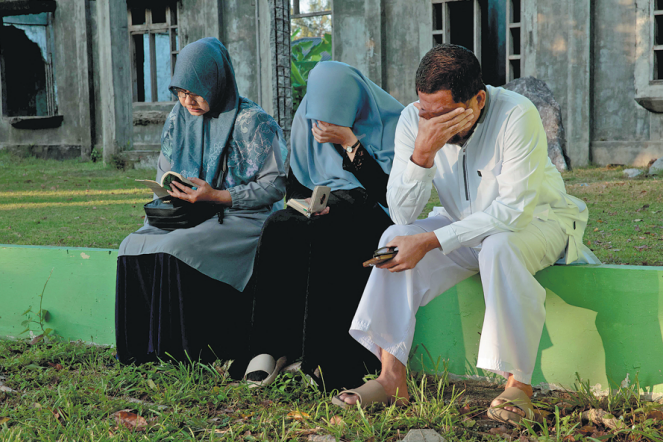Relevance of G20 meeting distorted by politicizing


Australian Prime Minister Anthony Albanese led the charge of hypocrisy at the recent G20 Summit with his deliberately pointed condemnation of the Ukraine crisis. He was soon followed by United Kingdom Prime Minister Rishi Sunak, who made similar comments.
This rank hypocrisy, which marred the G20, did not go unnoticed by some members of the G20 who are uncomfortable with the United States-led response. It was certainly noted by those in the Global South and the newly invited members from the African Union who have remained determinedly neutral in this conflict. They understand that the West's refusal to honor commitments on permitting the export of Russian grain is a significant contributor to global food shortages and commodity inflation.
United Nations Secretary-General Antonio Guterres spoke of a real risk of fragmentation of the world order. In the New Delhi Leaders' Declaration, G20 members agreed to rely on the tenets of the UN Charter on territorial integrity and go against the use of force. They agreed to triple renewable energy and attempt to increase the funds for climate change-related disasters, but maintained the status quo with regard to phasing out coal.
The G20 was structured to address economic problems and to develop cooperative solutions. The meeting in India showed clearly that these goals have been discarded in favor of geopolitical bickering and a drive to divide the world into blocs, replicating the Cold War.
In many ways, the economic cooperation objectives of the original G20 have been supplemented by more representative organizations, in particular BRICs — the grouping of the major emerging economies of Brazil, Russia, India, China and South Africa — which has expanded membership to include more Global South nations.
The Shanghai Cooperation Organization also offers another path of access to discussions that shape the global rules-based order in a way that respects the interests of a wider range of countries, rather than the narrow interests of the US and its Western allies.
The glitz and glamour of the G20 cannot conceal its decreasing relevance.
President Xi Jinping and Indian Prime Minister Narendra Modi met virtually just a few weeks ago in a less distracting environment at the Shanghai Cooperation Organization meeting chaired by India. They met again on the sidelines of the recent BRICS Summit in Johannesburg, South Africa. The conversations were not distracted by geopolitical posturing or politicization of what should be cooperative discussions on climate change and economic development.
Modi consulted with 125 countries in drawing up the G20 agenda, but many of their concerns did not merit discussion on the conference floor. Instead, there were blatant attempts to seduce members of the Global South with programs designed specifically to counter the Belt and Road Initiative and hamper the work of the Asian Infrastructure Investment Bank.
The meeting became a battle for influence as the US sought to rival China in the Global South. US National Security Advisor Jake Sullivan recently said the US was looking to provide the countries of the Global South with an alternative in addressing their infrastructure and funding needs. The announcement on the sidelines of the meeting of a rail and ports deal linking the Middle East and South Asia was part of US President Joe Biden's program to counter the China-proposed Belt and Road Initiative.
These sudden attempts to reach out to the Global South were obvious ploys in a geopolitical game rather than genuine cooperative solutions to long-standing needs. Many from the Global South have good cause to remember the strings that have always been attached to Western largesse.
The G20 meeting was distorted by the politicization of many issues. This diminished the group's important role in cooperatively addressing global economic problems and supporting diverse paths to economic development.
This stands in contrast to the Global Development Initiative outlined by President Xi in 2021, which is focused on meeting needs rather than on imposing a political agenda as a precondition for the delivery of assistance. Premier Li Qiang told European Commission President Ursula von der Leyen that "risk prevention does not preclude cooperation, and interdependence should not be equated with insecurity".
The G20 can and should play an important role in the coordination of responses to global economic problems, such as the management of the global impact of US and European debt. The status of this G20 meeting was undermined by hegemonic hypocrisy, which threatens to make the organization less relevant.
The author is an international financial technical analyst and a former national board member of the Australia China Business Council.

































